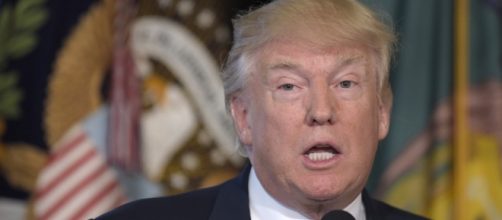Finally, US President Donald trump had grudgingly admitted that he did not secretly tape his interactions with James Comey former FBI director.
Trump had earlier indicated that he did record the conversations – his admission on Thursday eased the tension that characterized his presidency since the assumption of office, which cast doubt on his integrity and credibility.
White House's new tactics
It was a strange new pattern for an administration that has challenged protocol on decency and the presidency that has stretched the limits of conviction required in the overall behavior of the one who occupies the office itself.
The President finally acknowledged guilt after weeks of speculation, in what seems to be a reluctance to publicly admit mistakes and a move that he had no choice to make.
According to CNN, Trump said with all of the publicized electronic intercepts, surveillance, disclosure and unlawful leaking of information, he has no knowledge whether there were recording or tapes of his interactions with former FBI director James Comey, but he didn’t make or possess any of such recordings.
His comment could be seen as a new tactic by the White House to dodge accountability and probity on a humiliating adventure. Trump was not exposed to an inquest or cross-examination having chosen Twitter as his preferred for delivering his message.
Meanwhile, the White House discontinued the tradition of live television coverage of its daily press briefing, and the only broadcast recorded audio messages afterward.
The tapping controversy
Most people believe that the entire tape issue represents a misguided step by the President that places his administration on a dangerous political-legal tussle.
Trump’s tweet that Comey should hope that there are no recordings of their interactions before he leaks to the media, caused the uproar and raised comparison in the era of the Watergate taping method that led to the fall of former President Richard Nixon.
Earlier this month, Comey testified before the Senate intelligence committee that Trump’s personal comments asking him to end the probe into Michael Flynn, former national security adviser made him tell his colleagues at the Department of Justice to be careful.
He said several times he decided to take notes about his conversations with President Trump because he felt the President and the White House would frame lies about them if he didn’t.
The former FBI director stated that following the tweet he asked a friend to give the content of his memos to a journalist, in the belief that it would result in the appointment of a special counsel to oversee the matter.


